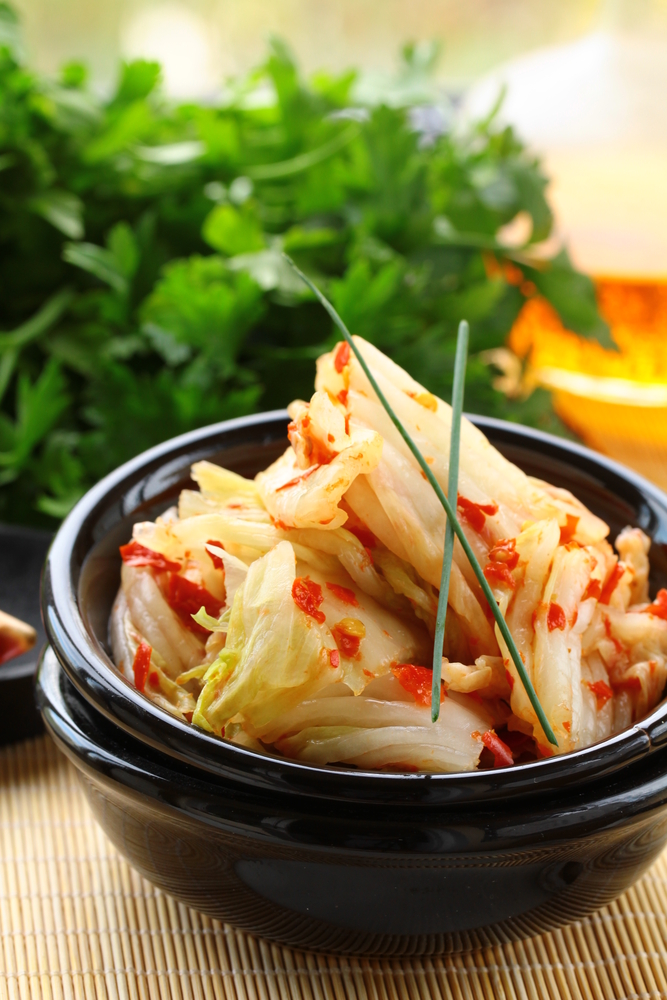
Probiotics have been used for years to help soothe digestive symptoms, combat yeast infections, and more.
However, research is now revealing that by improving the health of the gut through such probiotics, other parts of the body may also benefit.
It has been found that improving your gut health through diet and probiotics can help reduce inflammation, which in turn can help improve your heart health, skin health, and even reduce pain.
Technically speaking, probiotics are defined as a living organism such as yeast, bacterium, or fungi that may be able to benefit health(1).
They can be taken in many forms such as in fermented foods, capsules, or powdered forms. Primarily known for their positive impact on digestive health, research on probiotics is starting to show potential for probiotics to be used for a variety of health conditions.
rom inflammatory skin conditions such as eczema, acne, and psoriasis, to lowering cholesterol, the possibilities are very promising (2,3).
Inflammation is derived from the Latin word “inflammatio,” which means fire(4). This is a perfect description of the physical redness and swelling as well as the heat and pain that is brought about in states of inflammation.
It is thought that inflammatory health conditions can be improved by the work of good bacteria reducing oxidative stress in the body(5).
Oxidative stress is caused by free radicals, or unstable electrons, that go around stealing electrons from other cells to help them become more stable. Free radicals can form as a result of such exposures as smoking, herbicides, ozone, radiation, injury, infection, or even a poor diet full of processed foods and additives(4,6,7,8).
In turn, cells become damaged and inflamed, and over time can increase the risk of inflammatory conditions.
Such “stressors” can also lead to the imbalance of the gut, also known as dysbiosis, which can increase the risk of more serious digestive issues.
For example, one study found that the low-fiber, high-fat, and high-carbohydrate “Western diet” can lead to dysbiosis and increased risk of more serious digestive and colon issues(7).
Consuming antioxidant-rich fruits and vegetables as well as healthy fats such as those in a Mediterranean-style diet may be able to reverse such imbalances and reduce inflammation in the gut.
There are about 1000 different species of known bacteria in the body with a variety of different functions(9).
It is thought that the balance of these in the gut can be greatly impacted by the state of the brain and central nervous system, which is known as the gut-brain axis(10).
Studies have shown that administration of good bacteria, the probiotics, can help reduce inflammation markers and improve health outcomes in certain inflammatory conditions.
Besides taking probiotic capsules every day, there are other things you can do to help improve your gut health for inflammation.

Water makes up about 55-75-percent of the body and helps to lubricate joints, flush toxins from the body, among other things(14).
Therefore, be sure to drink plenty of fresh water each day.
The National Academies of Sciences, Engineering, and Medicine recommend that most men should drink about 15.5 cups of water each day, while women should consume at least 11.5 cups daily(15).

As mentioned before, exposure to chemicals and pollutants can increase the risk of oxidative stress in the body(4).
Therefore, do your best to wear protective clothing and eyewear whenever you are out in the sun, use more natural cleaning and yard maintenance products, and do your part to reduce pollutants by walking more and driving your car less.

Since it constricts blood vessels and impacts heart health. This constriction of oxygen in the body and exposure of the body to carcinogens can also increase levels of oxidative stress in the body and in turn increase the risk of inflammation(8).

Not only will this type of diet help heart health, but the prebiotic quality of such foods will feed the good bacteria and help improve the health of the gut and strengthen the immune system(16).
In addition, the antioxidants from brightly colored produce can help reduce oxidative stress in the body.
In fact, a meta-analysis of studies on plant-based diets found that those who consumed a plant-based diet had a reduction in CRP levels(17).
Try to consume mostly unprocessed, whole foods to reduce exposure to food additives and preservatives that can cause oxidative stress(18).


This includes sauerkraut, tempeh, kimchi, and yogurts that can provide you with natural sources of good bacteria(16).

Since the brain-gut-skin axis reveals that any stress in the brain can cause imbalances in the gut.
In turn, this can impact inflammation in many areas of the body and can lead to increased risk of chronic skin, heart, and joint conditions(19).
The gut is the core of your body and is often overlooked unless it is not functioning right. By putting your gut health in the center of your healthy lifestyle, the health of your entire body inside and out will benefit.. reducing inflammation, and hopefully leading to a more pain-free life!
References:
